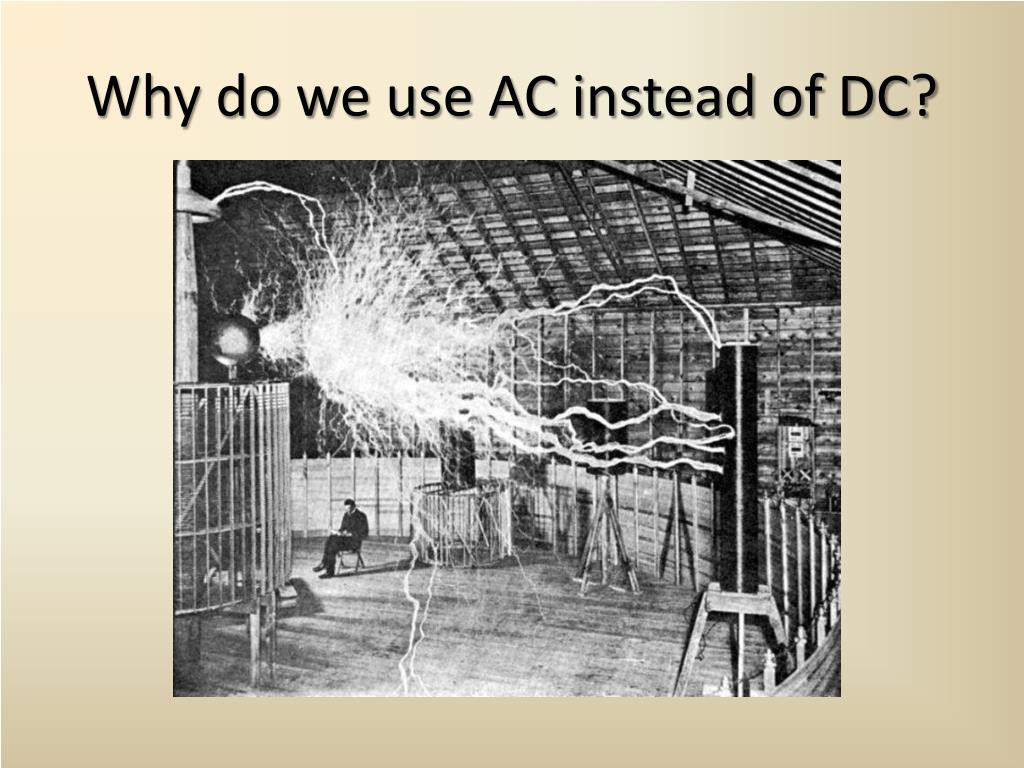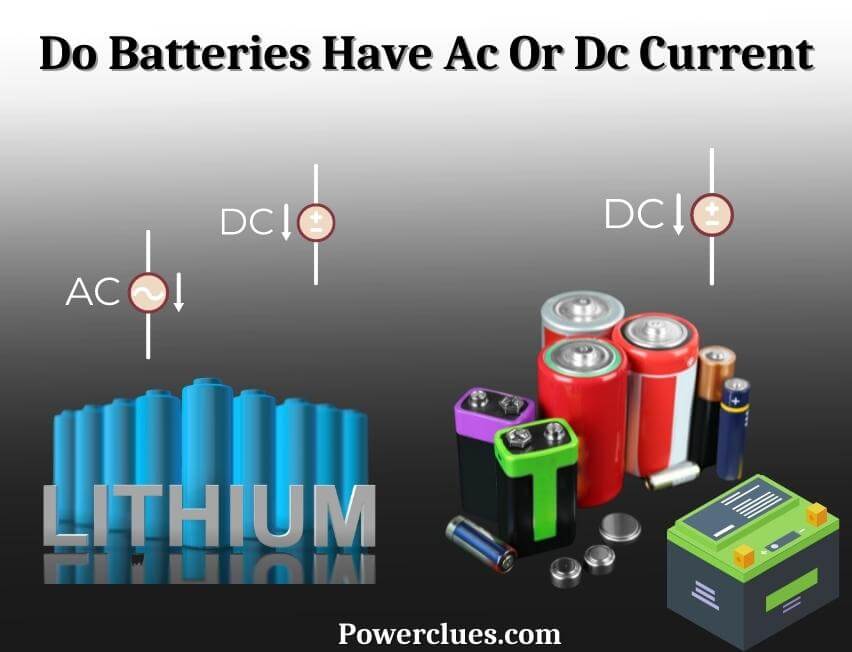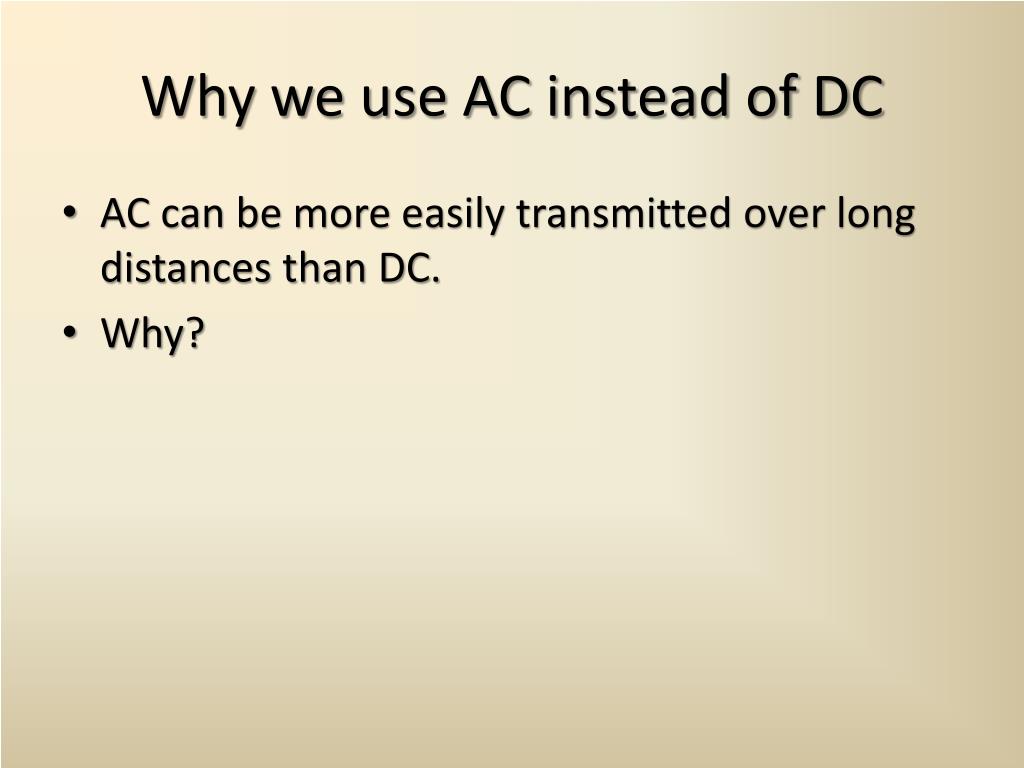Best Of The Best Info About Do We Use AC Or DC For Electricity

What Is The Difference Between Ac And Dc Bulb At Hudson Becher Blog
AC vs. DC
1. What's the Buzz About?
Ever wondered why your phone charger uses a different kind of electricity than, say, the power plant that lights up your whole town? It all boils down to the great AC versus DC debate — a showdown that started way back in the late 19th century with Thomas Edison and Nikola Tesla battling it out for electrical supremacy. No, seriously, it was a real thing! Think of it as the superhero movie we never knew we needed. In this article, we'll untangle this electrifying topic (sorry, couldn't resist!) and find out where each type of current shines.
So, what is the difference? Think of it this way: Direct Current (DC) is like a disciplined soldier marching in one direction. It flows steadily from positive to negative. Alternating Current (AC), on the other hand, is more like a party animal. It changes direction periodically, kind of like flipping a light switch on and off really, really fast. This "alternating" nature is what gives AC some serious advantages.
Imagine trying to get water from a well that's miles away. With DC, you'd need a super-thick pipe to prevent the water pressure from dropping too much over that distance. AC, however, is easily transformed to high voltages, allowing it to travel across long distances with significantly less loss. Then, it can be stepped down to safer voltages for use in your home.
Essentially, without AC, your devices might not even be able to function properly. Think about your phone — it needs to function constantly by having electricity flow through it, and that's what AC provides. It's this flexibility and efficiency that ultimately made AC the winner in the power grid race. But don't count DC out just yet — it still has some pretty cool uses up its sleeve!

The Perks of AC
2. Why AC is the King
Okay, so why did AC become the standard for powering our homes and businesses? It all comes down to a few key advantages, primarily its ability to be easily transformed. This means AC voltage can be increased for efficient long-distance transmission and then decreased for safe use in our devices. Try doing that with DC!
Think about those massive power lines stretching across the landscape. They're carrying electricity at incredibly high voltages — sometimes hundreds of thousands of volts! This minimizes energy loss during transmission, which is crucial when you're dealing with vast distances. Once the electricity reaches your neighborhood, transformers step the voltage down to a safer level for your home appliances.
Another advantage of AC is its simplicity when it comes to generating electricity. AC generators are generally more efficient and reliable than their DC counterparts. This means lower costs and greater overall efficiency for the power grid.
Let's be honest, imagine the inconvenience if AC wasn't implemented for electric grids and power. We'd have to make do with either generators or car batteries. That's a total hassle that no one wants to deal with. So, AC, with its convenience and usefulness, is what everyone is thankful for.

AC Vs DC A Complete Guide On What You Need To Know IBE Electronics
DC's Comeback
3. DC's Quiet Revolution
While AC may reign supreme in the world of power grids, DC is far from obsolete. In fact, it's making a comeback in several key areas. One of the most important is in electronic devices. Almost all of your gadgets — phones, laptops, TVs — actually run on DC power internally.
That's why you need those bulky AC adapters. They convert the AC power from the wall outlet into the DC power that your devices can use. So, even though your home is powered by AC, your gadgets are secretly running on DC.
Furthermore, DC is the preferred choice for many renewable energy sources. Solar panels, for example, generate DC electricity. Similarly, batteries store electricity as DC. This makes DC ideal for powering electric vehicles and for off-grid applications like solar-powered homes.
The increasing popularity of renewable energy and electric vehicles is driving a renewed interest in DC power systems. Some experts even predict that we'll see a shift towards more DC-based power distribution in the future, particularly in homes and businesses that generate their own electricity.

The Best of Both Worlds
4. Living in Electrical Harmony
The truth is, we need both AC and DC to power our modern world. They each have their strengths and weaknesses, and they complement each other perfectly. AC provides the backbone of our power grid, allowing us to transmit electricity efficiently over long distances. DC powers our electronic devices and is becoming increasingly important for renewable energy applications.
Imagine a world where we only had one type of current. If it was only AC, your devices might require heavy and inefficient transformers internally. If it was only DC, powering cities and getting electricity from far-off power plants would become a logistical nightmare.
The future of electricity likely involves a more integrated approach, where AC and DC work together seamlessly. For example, we might see homes with DC power distribution systems that are powered by solar panels and batteries, with AC as a backup source. This could lead to greater energy efficiency and reduced reliance on the traditional power grid.
So, the next time you plug in your phone or flip a light switch, take a moment to appreciate the intricate dance between AC and DC that makes it all possible. It's a story of innovation, competition, and ultimately, cooperation, that continues to shape the way we live.

Frequently Asked Questions (FAQs)
5. Your Burning Questions Answered!
We understand you might have a few more questions buzzing around in your head. So, let's tackle some of the most common queries about AC and DC.
6. Q
A: While some countries have adopted USB charging ports in wall sockets, most standard wall outlets deliver AC power at a voltage that's too high and incompatible with your phone. Your phone needs DC power at a much lower voltage. The adapter steps down the voltage and converts AC to DC, protecting your phone from being fried!
7. Q
A: Both AC and DC electricity can be dangerous at high voltages. However, AC is generally considered to be more dangerous because it can cause muscle contractions that make it difficult to let go of the source of electricity. The alternating nature of AC can also disrupt the heart's rhythm more easily than DC.
8. Q
A: While AC is incredibly useful, there are some drawbacks. Converting AC to DC and vice versa can result in some energy loss. Also, AC power can cause electromagnetic interference, which can affect sensitive electronic equipment. DC is slightly safer, but it's not as cost effective as AC. Because of this, many households prioritize AC over DC.
9. Q
A: It's unlikely that DC will completely replace AC. While DC is becoming more important for specific applications like renewable energy and electronic devices, AC remains the most efficient way to transmit electricity over long distances. A more likely scenario is a hybrid approach where both AC and DC coexist and work together to power our world.
